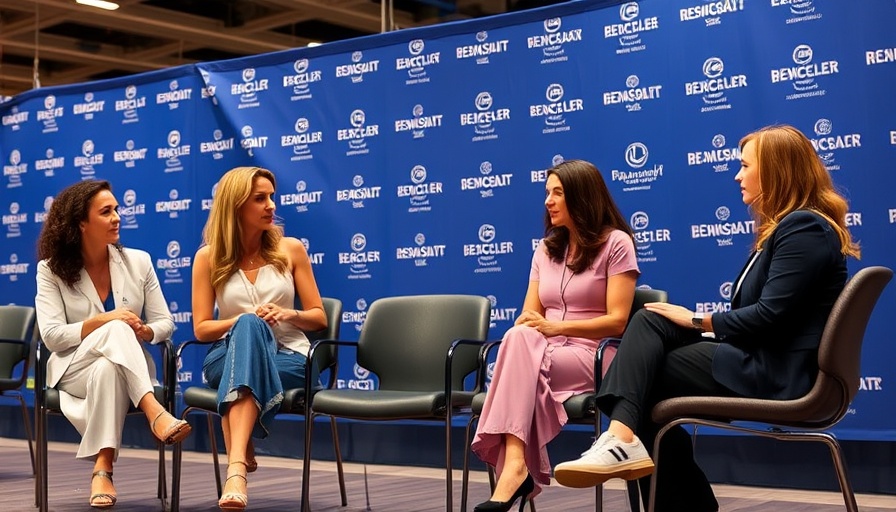
The Critical Role of Nutrition in Running Injury Prevention
In a world where running is surging in popularity, a recent study sheds light on a surprising contributor to running-related injuries, particularly among female athletes. Researchers analyzed data from over 5,900 runners, revealing a strong correlation between inadequate energy and fat intake and an elevated risk of injury. As more women lace up their trainers—evident in historic participation rates in events like the London Marathon—this topic becomes more crucial.
Understanding the Study's Findings
This significant study published in the Journal of Science and Medicine in Sport indicates that female runners who faced injuries consumed, on average, 450 fewer calories and 20 grams less fat each day compared to their uninjured peers. Both injured and uninjured runners had differing fibre intake levels as well, with injury-prone individuals consuming around three grams less fibre daily. But what does this mean for you?
Why Lower Energy Intakes Matter
Underfuelling a runner's body leads to a condition known as low energy availability (LEA), which can result in Relative Energy Deficiency Syndrome (RED-S). This syndrome manifests as a cascading series of effects: decreased athletic performance, poorer recovery rates, and a higher likelihood of injuries. It's crucial for runners to prioritize adequate nutrition to maintain endurance and overall health.
Fat and Fibre: The Unsung Heroes
The study rightly points out that fat is not the enemy it is often portrayed to be, especially for runners. Healthy fats not only provide essential energy but also play a key role in hormone production and nutrient absorption. Similarly, fibre is vital—not just for digestive health but also for preventing bone stress injuries, which can be detrimental to a runner's long-term career.
Practical Nutrition Tips for Female Runners
To mitigate injury risks, here are some actionable nutrition tips:
- Whole Grains and Healthy Fats: Incorporate sources like avocados, nuts, and olive oil into your meals to improve both fat intake and overall energy.
- Smart Snacking: Opt for nutritious snacks—like a banana with nut butter—that combine carb and fat sources.
- Fibre-Rich Foods: Increase consumption of fruits, vegetables, and legumes to ensure you meet your daily fibre goals.
By taking these steps, you can maintain balanced nutrition that supports your running needs. The evidence is clear: a well-rounded diet is a cornerstone of injury prevention.
The Future of Female Runners' Health
As the running community continues to embrace inclusivity, attention must also turn to the nutritional needs that accompany increased activity. By fostering a culture of properly addressing diet among female runners, we pave the way for healthier participation in the sport, ultimately leading to fewer injuries and enhanced performance.
Local Perspectives on Running and Nutrition
In regions like Sussex, where running events are becoming more frequent, local communities can foster supportive environments. Running clubs and health practitioners should advocate for nutritional education while promoting awareness about the risks of underfuelling. Understanding the local landscape can help shape better practices and engage more runners optimally.
Conclusion: The Importance of Nutrition for Runners
Runners aren’t just athletes—they are dynamic individuals requiring balanced diets to excel and enjoy their sport safely. By understanding the risks associated with low energy and fat intakes, particularly within the female running community, we can work towards a more informed, healthier future for all athletes. So, lace up, fuel properly, and let every stride be taken with confidence! Count on your diet to support your run.
 Add Row
Add Row 

 Add Element
Add Element 


Write A Comment